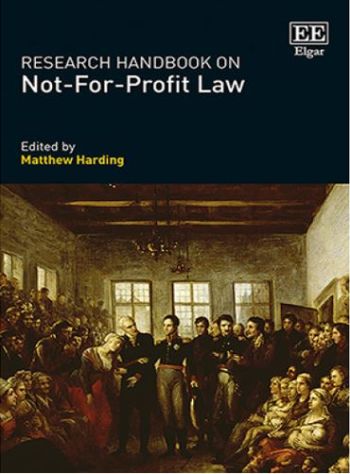
Recent trends in the social, economic, and political lives of many communities have created new challenges for the not-for-profit sector, which, in turn, have demanded new legal and regulatory responses. This Handbook takes account of these developments, providing a thorough insight to current scholarship in the field of not-for-profit law.
Contributions from both established and emerging scholars reflect a variety of disciplinary and jurisdictional perspectives. A range of topics relating to the not-for-profit sector are explored, including: the sector’s composition and scope, the legal conception of charity, the tax treatment of not-for-profits and their supporters, and the regulation of not-for-profits. The Handbook also examines the often-neglected topic of not-for-profits and the constitution. This interdisciplinary Handbook makes a seminal contribution to defining not-for-profit law as a distinctive field of study, and in doing so, lays a strong foundation for future research.
Scholars working on not-for-profit studies, whether in law, economics, sociology, philosophy, political science or business management, will find this a compelling body of work as it covers all aspects of not-for-profit law. Those working within the sector, or providing legal advice to the sector, will also find this Handbook to be an indispensable source of information.